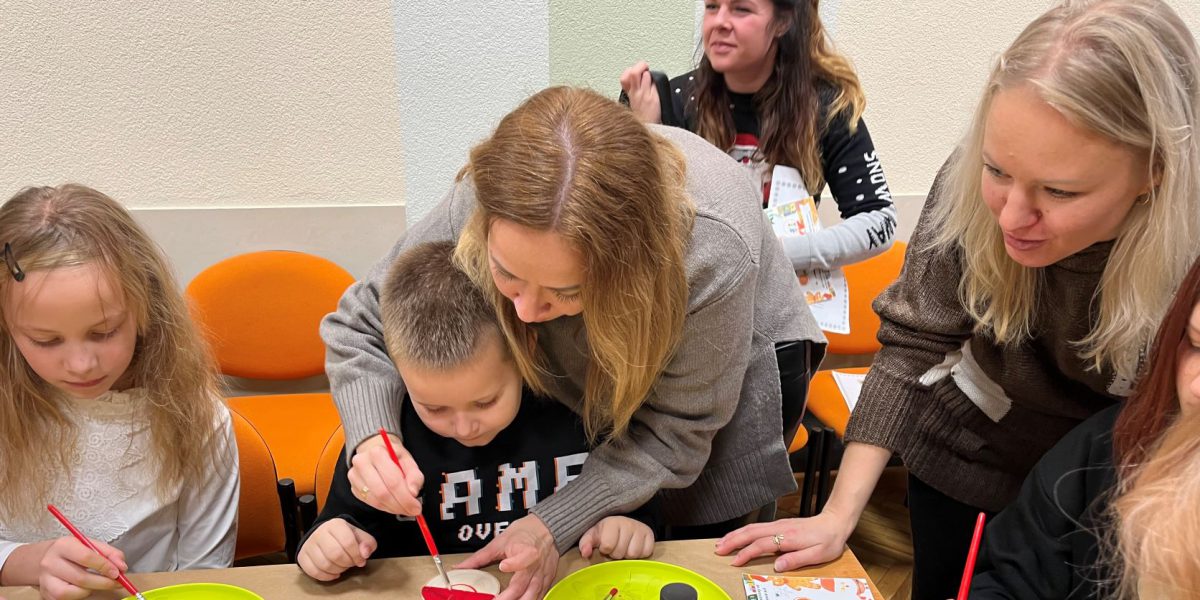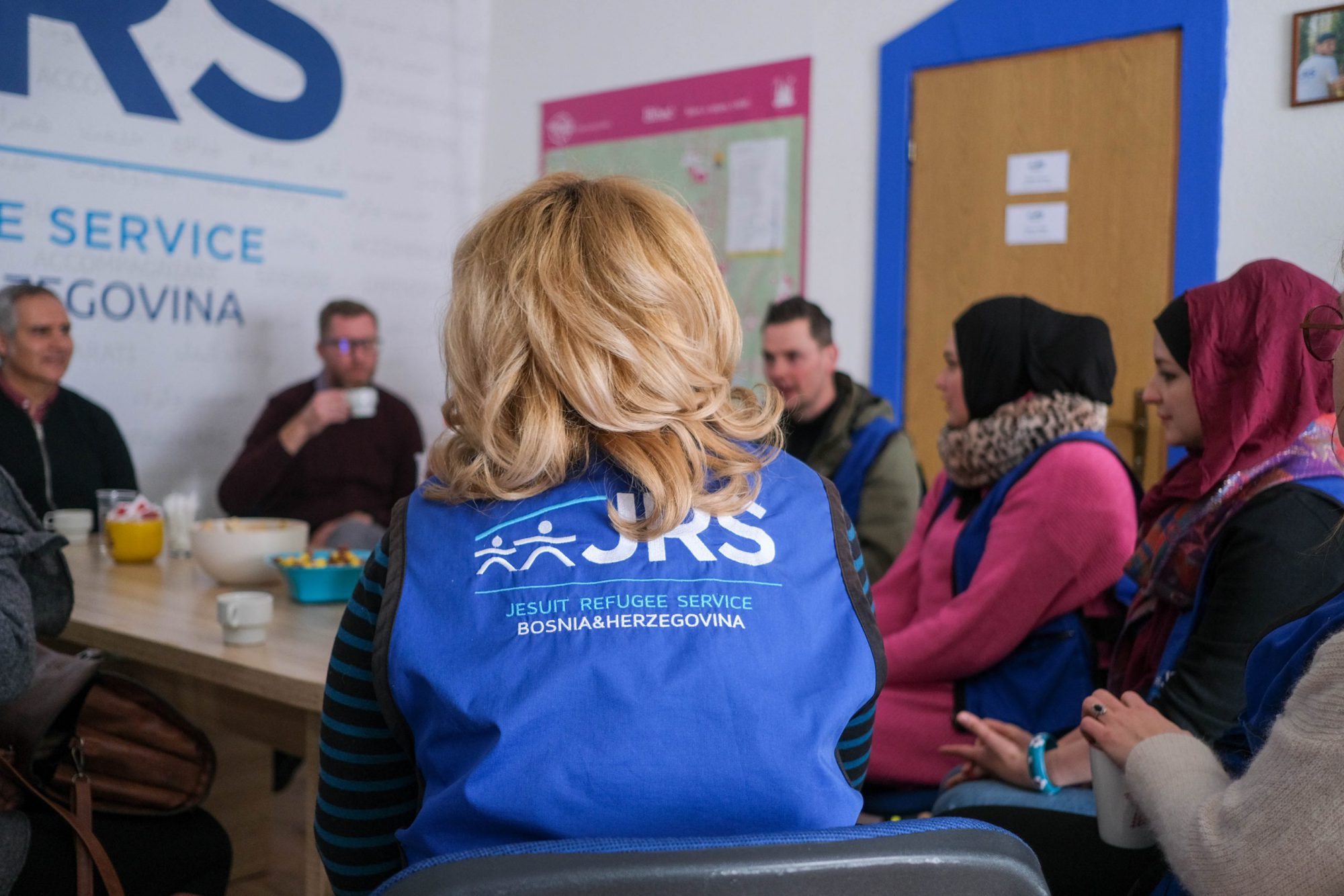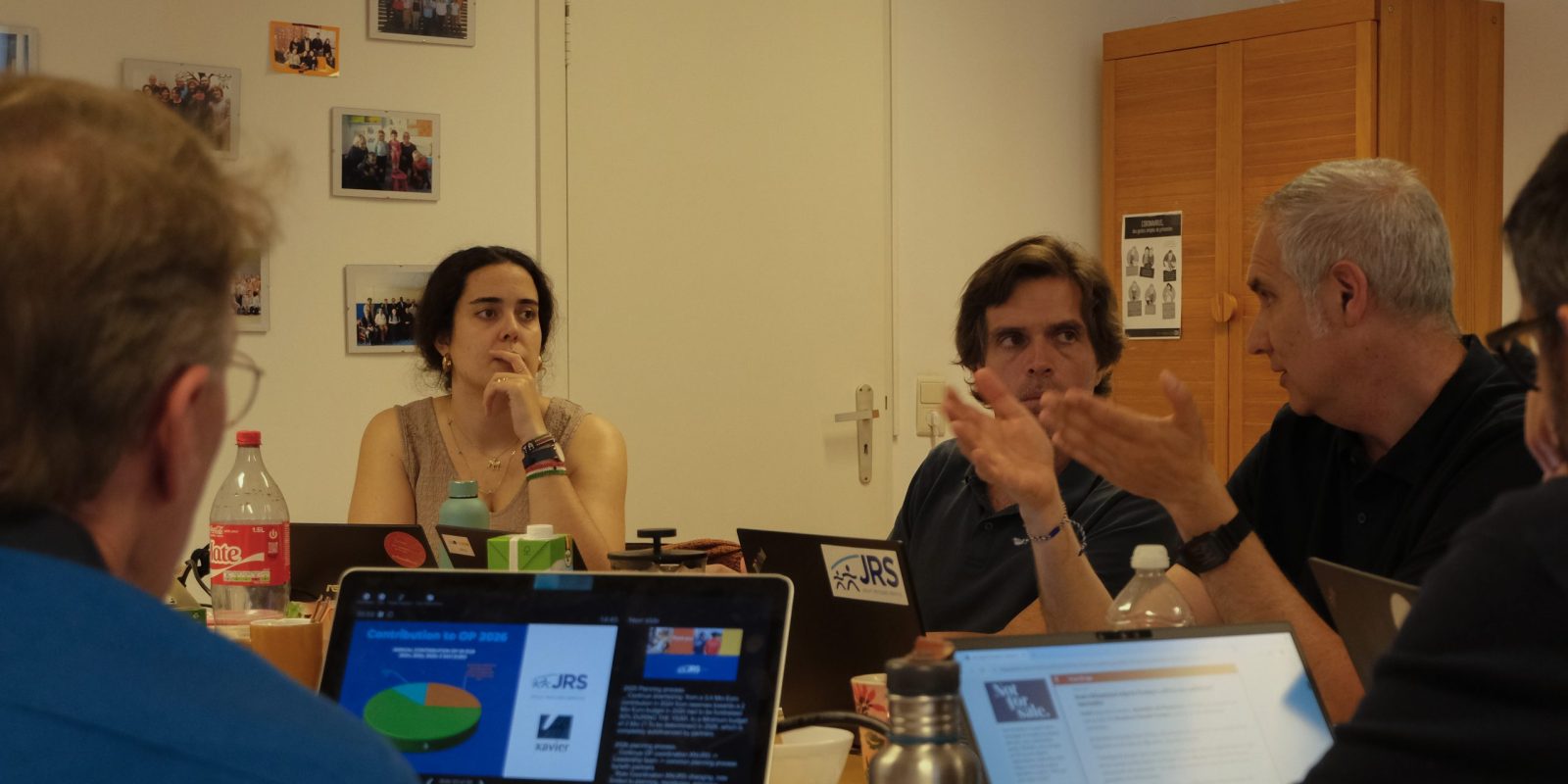Natalia’s testimony
04 July 2025|JRS Europe

Natalia’s testimony squeezes out tears, but also inspires hope. It is perhaps the most moving “Christmas story” you will read this year. The Jesuit Refugee Service, recently established in Poland, is doing what it can to help those fleeing war to organize a safe life in Poland.
“I come from Mariupol, there everyone spoke Russian. My children and my husband and I lived with my parents. I am a medical doctor and worked at the blood donation station, in the laboratory. My husband worked as an electrician. We have a total of three children. The eldest daughter, Maria, is 23, graduated from the University of Mariupol, but didn’t go for a master’s degree because the war broke out. The son studied in Kherson, but also didn’t get a degree because we fled Ukraine. The younger son is 14 and has now gone to school in Poland.
When the war broke out medics were still needed. So I worked as long as possible, until March 2nd .
We escaped from Mariupol. I very much do not wish anyone what we went through. The war stays in a person. Here in Poland we have a wonderful apartment, not far from the training ground. Yesterday I was standing at a bus stop and heard gunshots there. I got a panic attack. My heart started pounding. I knew it was just training, but there were shots all the time in Mariupol. Our city was destroyed along with the people. Only a few survived. When you’re sitting and you have nowhere to hide…; or you have nowhere to hide, but you can’t leave your infirm mother…; you see that around the windows are flying. Explosions and panic. And you can’t do anything about it. I hope no one will experience what I experienced.
Then people began to return to life in Mariupol. Although we had nothing to go back to. Our apartment bought two years ago was in ruins. When the shelling of the city began we had to take refuge in the basement. We sat there with the family for a month. There was no electricity, heating, water, cellular coverage or gas.
From March 2nd to March 25th there was already serious shelling. We only went out to make some food, take some water, but that was under constant shelling. We cooked on a campfire by our house, risking our own lives. We had to feed the children, twice a day we cooked something for them. First the children ate, and then we ate. There was no bread for two weeks. We ate some supplies. Someone brought butter, someone some other products.
Deportations to Russia
Around March 20, evacuation buses began to appear. They were deporting people to Russia. My daughter with her boyfriend and older son went to Poland via Russia. I didn’t know what was happening to them, because coverage was only in some of the tall buildings in the city. I didn’t call, only texted, in our hospital on the 8th floor.
They started transporting the first groups of people from March 20th to 25th . Large buses were leaving from the hospital. There were very large queues, so people signed up for transportation. Each bus held about 70 people.
I couldn’t leave because my mother is unable to move. I just stood and said goodbye to people.
My mother was then moved from the basement to our friends’ apartment. They still had glass in the windows. But it was incredibly cold. We carried my mother up to the fifth floor. It was very hard. In my soul I expected that mom would not survive the cold. I don’t say anything about the fact that there was no food, water and other things.
I started looking for another way to get out of the city. We had a car, but there was no fuel. A priest from our Orthodox church helped us by organizing help.
My son, through friends from all over the world, got us a place in a summer house near Mariupol. We were welcomed by good people, but on the condition that we would still transport their grandfather and grandmother. We took my mother and son. And on March 24th we left.
It was warm there, you could wash your hands, lie down on a warm bed, or prepare food on the stove, no longer on the fire.
If you read this, anyone who helped us, please know that we are incredibly grateful. They hosted us for five months free of charge. There were about 30 people all together.
They told us to leave on July 27th, and to take all our valuables. We took the stuff, but we had nothing to drive with. So we were only able to leave in August.
We drove for a week. The hardest moment was at the Russia-Estonia border. We waited at it for two days. There were many people waiting there, with children and elderly people. When we crossed the Russian border, we only waited 30 minutes at the Estonian one. There was not even any inspection of our belongings.
We met with my son, who was in Latvia, because the Kherson academy had moved there, and he continued his studies there. Half a year I did not see him. We lived in a hostel for two days and went on to Warsaw.
My daughter and her boyfriend attended Polish language courses organized by JRS Poland. They liked the teacher very much and praised the atmosphere in the group. They also enrolled me in this course. I came here with joy. I am very grateful for this help.
At this point everything is good, we have an apartment. The owners get money from the state, so we don’t pay. There is a chance to learn Polish, to find work, maybe in line with qualifications. My son went to school, he is learning Polish. Thank you very much for doing these things.
When I think about the future I only dream that the children find their place in this world, that they have a job. For my son to finish college, for my daughter to find a stable job, for my younger son to finish school and get a certificate. So that our family would be together. So that there would be no war.
JRS is working together with the Xavier Network, Concordia Moldova, the Society of Jesus in Europe, local civil society, and NGOs in a coordinated Jesuit response. Together we help thousands of people like Veronika. You can read more about The One Proposal: the coordinated Jesuit response to support the Ukraine Crisis here.


